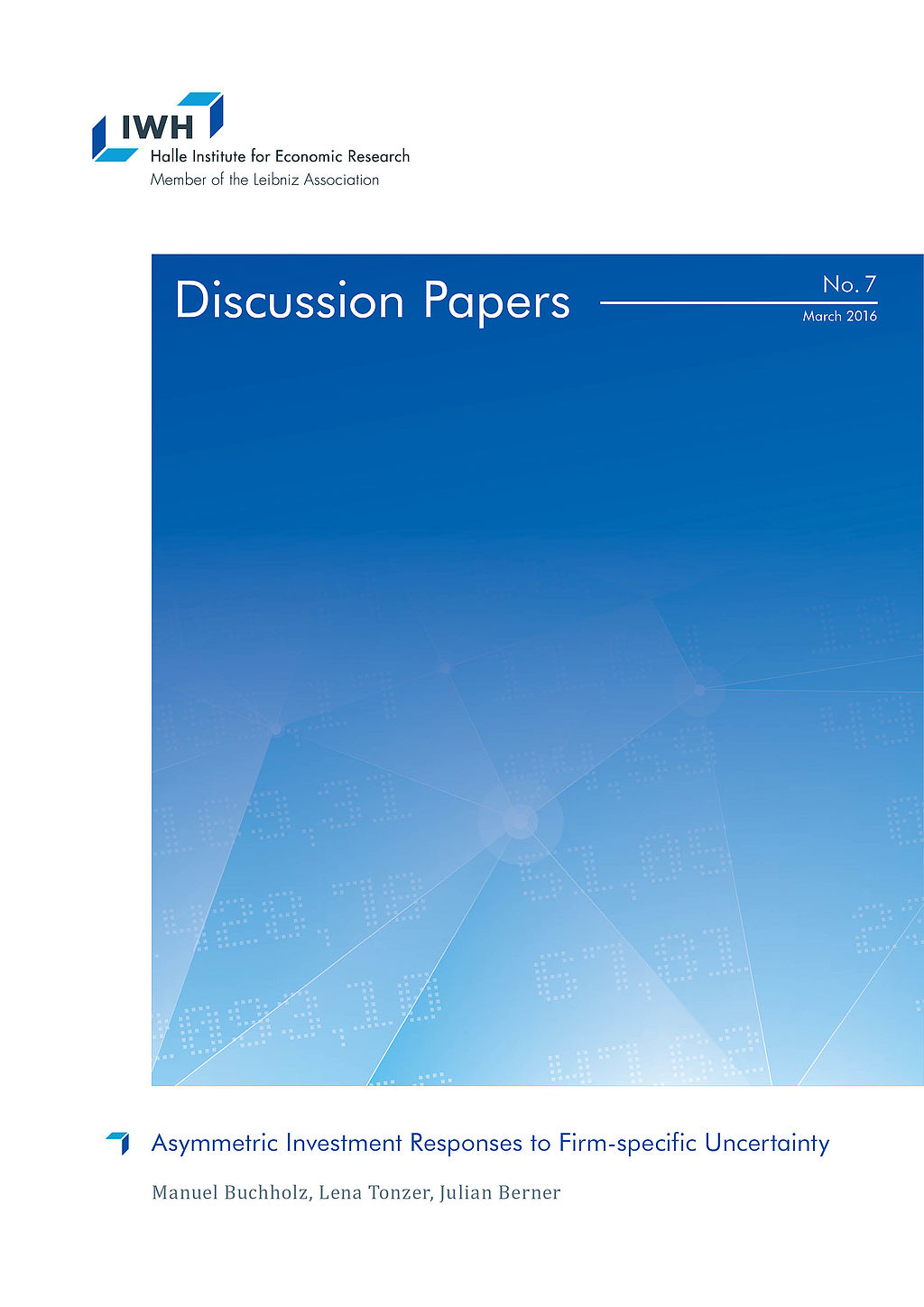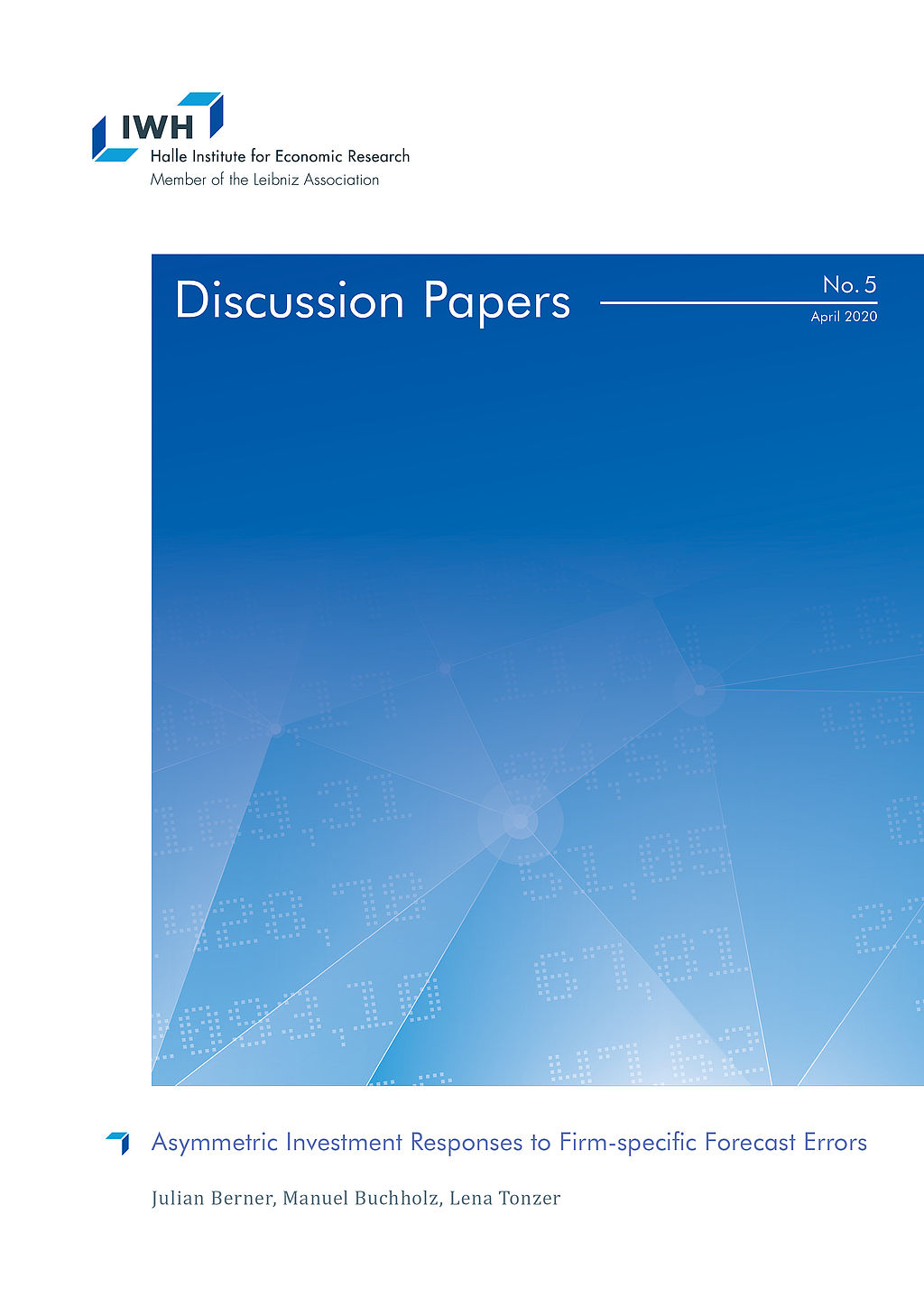
Asymmetric Investment Responses to Firm-specific Uncertainty
This paper analyzes how firm-specific uncertainty affects firms’ propensity to invest. We measure firm-specific uncertainty as firms’ absolute forecast errors derived from survey data of German manufacturing firms over 2007–2011. In line with the literature, our empirical findings reveal a negative impact of firm-specific uncertainty on investment. However, further results show that the investment response is asymmetric, depending on the size and direction of the forecast error. The investment propensity declines significantly if the realized situation is worse than expected. However, firms do not adjust their investment if the realized situation is better than expected, which suggests that the uncertainty effect counteracts the positive effect due to unexpectedly favorable business conditions. This can be one explanation behind the phenomenon of slow recovery in the aftermath of financial crises. Additional results show that the forecast error is highly concurrent with an ex-ante measure of firm-specific uncertainty we obtain from the survey data. Furthermore, the effect of firm-specific uncertainty is enforced for firms that face a tighter financing situation.






